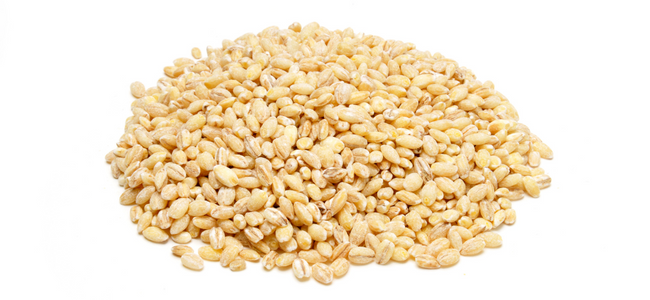As the South Korean food industry is exploring the possibility of developing new products using U.S. barley containing beta-glucan, the U.S. Grains Council (USGC) is ready to offer educational opportunities to help the industry better understand the qualities of the U.S. commodity.
The Council’s office in Seoul sponsored a team of potential barley buyers and product developers from leading food and confectionary companies in the country to participate in an online food barley course – Healthy Solutions for Food Barley Uses – organized by the North Crop Institute (NCI). The course covered topics including barley breeding programs; nutritional benefits of food barley and health claims; food barley product trends; an overview of the current U.S. barley market; and food safety and traceability. The program also offered virtual tours of a processing facility.
“The latest trend for Korean food companies is to find excellent functional food ingredients that will satisfy the needs of consumers. Thanks to the Council’s efforts to promote the functionality of U.S. food barley and support samples, Dongseo Food, a participant in the 2021 NCI Food Barley Course, launched a whole barley granola product containing 27 percent of U.S. barley late last year,” said Haksoo Kim, USGC director in South Korea. “It is expected that the launch of new barley products using U.S. food barley will increase in the future.”
Korea consumes approximately 180,000 metric tons (TMT), or 8,267,328 bushels, of barley annually, mostly as a rice substitute. It produces about 110 TMT of barley every year for domestic consumption.
The Korea–US free trade agreement (KORUS FTA) has created an opportunity for the United States to export a fixed volume of food barley duty-free under the tariff rate quota (TRQ). The duty-free quota in 2022 was 3,047 tons (139,947 bushels) and is set to increase to 3,299 MT (151,521 bushels) in 2026. In 2027, the tariff is set to be eliminated. The Council has been promoting the use of U.S. food and malting barley since the implementation of the KORUS FTA.
“Since the conclusion of the U.S.-Korea FTA in 2012, the Korean office has been conducting programs to publicize the excellence of U.S. barley to increase demand in South Korea. In particular, the NCI online program is receiving good feedback from participants because it not only allows many industry buyers and research and development personnel to participate, but also provides comprehensive information on the various functionalities of barley products and the market. Furthermore, the Korean office will strengthen support activities such as providing samples and connecting with suppliers to support new product development of these companies,” Kim said.
By sponsoring this online course, the Council hopes participants will walk away with an improved understanding of the advantages of U.S. food barley, while also having created new marketplace connections. This program will contribute to promoting the development of barley products using U.S. barley by the food and confectionery companies in Korea and increasing U.S. barley imports in future.
About The U.S. Grains Council
The U.S. Grains Council develops export markets for U.S. barley, corn, sorghum and related products including distiller’s dried grains with solubles (DDGS) and ethanol. With full-time presence in 28 locations, the Council operates programs in more than 50 countries and the European Union. The Council believes exports are vital to global economic development and to U.S. agriculture’s profitability. Detailed information about the Council and its programs is online at www.grains.org.

